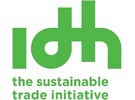The volume of sustainably sourced fruit and vegetables, coming from outside of Europe, has risen significantly in the past years. The SIFAV partners currently trade a combined annual volume of 3.5 million tonnes, of produce such as bananas, citrus and avocados. Some 74% is now sourced sustainably from producers with full verification of working conditions. The volume represents almost one quarter of European import from risk countries. This has emerged from the 2019 annual monitoring of the Sustainability Initiative Fruit and Vegetables (SIFAV).
In its establishment, the founders of SIFAV decided to challenge market requirements, particularly with regards to working conditions at producers in origin countries. In 2012, the verification of working conditions at farm level in fruit and vegetable value chains was far from the norm. Requiring close relationships with producers, the joint adoption of full social verification as a sourcing requirement has led to a greater awareness of social sustainability levels at production level and has driven considerable improvements.
From 400,000 tonnes to 2.6 million tonnes
Today, full verification of working conditions is much more widely practiced, as the SIFAV annual monitoring report shows. The joint sustainably sourced volume of SIFAV partners has developed considerably from 400.000 tonnes in 2013 to well over six times that volume: 2.6 million tonnes in 2018. The joining of new companies to the SIFAV partnership has contributed considerably to this growth, but the most effort has been in the consistent supporting and monitoring of the adoption of good social practices at farm level by the individual SIFAV partners.
Tony Bruggink, Director Fresh & Ingredients at IDH, The Sustainable Trade Initiative: “We applaud our partners for their strategic outlook on social sustainability, for their consistent effort to drive full verification of working conditions in their value chains and by together doing this, setting a new high standard for Europe for sustainable procurement. The willingness of trade, retail and civil society organizations to set a shared ambition under the SIFAV covenant in 2012, has enabled all involved to experience that it’s both possible and highly effective to work together pre-competitively on important social matters. This learning has been instrumental in setting the stage for the recently set ambitions of the Dutch retail on closing the living wage gap in their banana supply chains. We can be proud of the long way we have come. But we have also learned that the journey towards 100% sustainable fruit and vegetable value chains is far from finished.”
Stefanie Vermaesen, SIFAV Chair and Senior Advisor Sustainable Business at Nature’s Pride: “We are currently setting the SIFAV 2025 ambitions, building on both the learnings from within SIFAV and IDH, as well as with outside developments, such as the UN SDGs, European politics and legislation, and consumer demands. The social agenda will focus on the topics of living wage and on working conditions, with the aim to support companies with a joint approach and tools to better assess social risks and issues in their value chains and to address them both through and beyond verification. Environmental sustainability will make up a considerable share of the SIFAV agenda going forward. The aim is to first achieve alignment on how environmental impact is measured. Agreeing on practical measurement systems and tools, setting a baseline and executing joint assessments in our international value chains is the essential starting point for better targeted impact.”
On the road to 2025
Next to the development of an ambitious 2025 agenda, steps will also be taken to further increase the share of sourcing from producers with full verification of working conditions. A recent in-depth discussion organized with SIFAV partners has provided a better understanding of the key challenges to achieve this.
At the supply side, challenges to improve verification levels are particularly encountered with (mostly unorganized) smallholder farmers and with farms with mainly short-term seasonal labour. A study commissioned by SIFAV in the last year supports the conception that barriers exist for some groups of farmers to achieve full social verification. The SIFAV Smallholder Working group now aims to engage with standard setting organizations to see how these barriers can be addressed in a way that matches both retail market assurance requirements and smallholder farmer realities.
Challenges can also be found within the organizations of the SIFAV partners. Traders and retail have put systems and people in place for the needed supplier support and record administration, but there’s still room for improvement and increasing efficiency. Next to this it takes a clear strategic direction at executive level and mindset in the commercial team to consistently implement social procurement practices. The dynamics, and competitiveness in the fruit and vegetable industry continuously challenge these good practices, for example when ad-hoc buying is required to fulfil customer demand.
The last relevant factor is the power of demand. Although the SIFAV group represents a considerable share of the European market, there are still retailers and traders that have not embraced the same levels of sustainable procurement practices.
Stefanie Vermaesen: “We invite more European companies to join SIFAV. Together we can achieve much more. Aligned approaches on socially and environmentally sustainable sourcing creates a level playing field, allows for a more impactful, more cost-efficient implementation and for improved communication amongst stakeholders."
For more information: IDH - The Sustainable Trade Initiative
IDH - The Sustainable Trade Initiative
+31(0)30 230 5660
[email protected]
www.idhsustainabletrade.com
